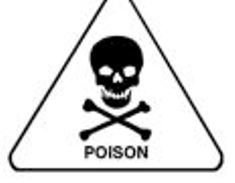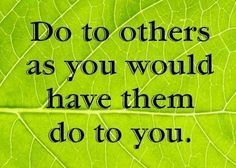
I recently finished reading Christopher Hitchens' final book, God Is Not Great: How Religion Poisons Everything (Twelve Books, May, 2007). Hitchens writes brilliantly, building a very persuasive indictment of not just Christianity and Judaism, but truly all religions, for the unquestioned horrors that have been perpetrated by believers through the ages in the name of their various faiths. It's almost embarrassingly easy to cite examples from recent history: The Holocaust, "Ethnic Cleansing" in Bosnia, the "Troubles" in Northern Ireland, the 2001 terrorist attacks on New York and Washington, the Oklahoma City bombings, to name a few of the most notorious examples. In all these events, and in many other such crimes, the common thread is that the criminals believed that they were carrying out God's wishes. What is it about religion that makes its adherents so bloodthirsty and hate-driven?
After all, each of the world's major religions includes in its canon some version of the most basic of all ethical teachings: Treat your neighbor in the way that you would wish him to treat you. What could be simpler or more straightforward? Whenever we are faced with some ethical issue, we are advised to put ourselves in the other person's place, to walk a mile in his shoes. We are taught to ask ourselves, "What would I see as a just resolution of this question if I were that other person?" Why can't the world's religions apply this process to their dealings with each other?
Not too long ago, I heard an interview on NPR with a neuro-surgeon who has done research into brain activity in people encountering strong differences of opinion. I can't provide a complete description of the study, but I do remember her conclusion. She said that when we have one of our deeply- held world views challenged, the areas of our brain that are activated are the same as the ones involved when we face life-threatening physical assaults. In other words, if you deride my religion, or if you somehow imply that I am going to be forced to follow your religion, my immediate subconscious reaction is going to be pretty much what it would be if you pointed a gun at me in a dark alley - anger, panic, fury, terror, rage, desperation.

That description resonates with me. I have all of the above reactions when I hear the Christian Dominionists talk about establishing religious (read conservative Protestant) requirements for U.S. officeholders, or when the Alabama Legislature considers enacting laws granting vouchers to parents who send their children to parochial schools. I can feel my blood pressure rising, my fight-or-flight mechanism kicking in. I am not by nature or training a violent person, but I can certainly see how disagreements over religion can trigger violence in those who are the least bit inclined that way. What right do those arrogant bastards have to impose their religion onto my life?
The answer to that question, of course, is "None", and that is precisely why Jefferson and Madison insisted on the anti-establishment clause in the First Amendment. Self-government and religion can only co-exist when they are separated by an "unbreachable wall" protecting the absolute rights of all religious minorities, including those who have no religion, to worship (or not worship) as they choose. Religious beliefs are inherently irrational and arbitrary, and so cannot be the foundation for public policy, except insofar as we limit ourselves to those tenets, such as "Do unto others as you would have them do to you", that are shared by all, regardless of their faith.
In my opinion, Mr. Hitchens' overstates the case somewhat. I don't believe that religion in the abstract, or even in some of its practices, is toxic. We do have the churches to thank, after all, for much of the great art and great music of our society. Furthermore, churches are often among the first to respond to natural disasters like the killer tornadoes that ripped across North Alabama in April of 2011. During that grim week, several of Montgomery's local congregations, including the one my family belongs to, had groups of quite well-organized relief workers on the scene within 48 hours, and that aid continued for several weeks after the storms. While you could certainly argue that the groups of volunteers descending upon the storm sites for a few hours at a time were not particularly effective, you can't devalue the impulses that sent them there.
No, I don't believe that religion in and of itself is poisonous; but I do believe that any actions that seek to impose religion on others should be considered a criminal act of social violence, and prosecuted as such. No preacher, no church, no denomination has the authority to establish its teachings and practices as laws that must be followed by all. Churches must recognize, if they will be good citizens in a free society, that there is no one religious belief. They must learn to respect the diversity of opinion around them, and give up trying to compel agreement, or acquiescence, from their neighbors. They must acknowledge that they are human institutions, and can claim no more authority than any other human institution.
We, the people, must say to the churches, "Preach what you will from your pulpits, but never, ever try to coerce the rest of us into your way of thinking. It is the coercion that turns your gospels into lethal weapons, and your vestments into battle armor. It is your insistence on force instead of persuasion that makes you a fatal toxin in society's bloodstream."
Thomas R. Borden Waugh, Alabama May 20, 2013